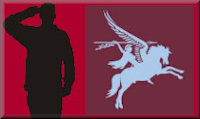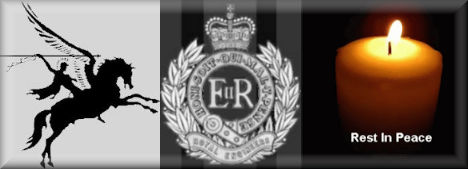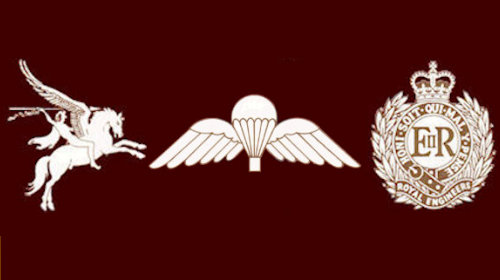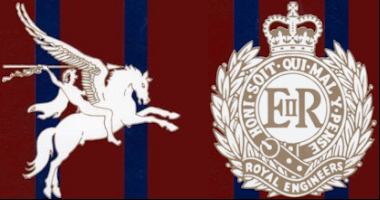
Roll of Honour

A Tribute to Jimmy Wilson MM by Mick Walker
“It is with considerable regret that I have to announce the passing of Jimmy Wilson MM. He died on 22 October 2011 and was laid to rest the following Thursday, AEA Scotland and the local PRA were well represented at the funeral”
Those of you who served with Jocks will know that we like to be a little different and that applies in this case - the Edinburgh Branch had only one Second World War veteran in its midst. Like many men after the war Jimmy’s prime concern was getting a house, a job and raising his family - you know, the normal every day, mundane things. Later on he started to try to make contact with his former comrades but with little success. Partly to try to flush out anyone who served with Jimmy and partly because I felt his story was well worth recording I met with him and here is an abridged version of his life.
He was born in Portobello, Edinburgh in 1919 and was the first of 5 children - all sons - of dad James and mum Helen. On leaving the local school at 14 he decided not to follow his dad down the pit but served an apprenticeship as a marine engineer in Henry Robb shipyard in Leith. Work was scarce when he finished this apprenticeship and in 1938 he joined the Army, fully intending to make a career of it.
After basic training at Chatham where he excelled at all sports; Jimmy was posted to 23 Field Coy RE in Aldershot and the unit was sent to Lille in France as part of the British Expeditionary Force (BEF). Life was relatively peaceful at first until the ‘tactical withdrawal’ to Dunkirk. In addition to helping blow up bridges to slow the German advance Jimmy was also being used as a dispatch rider. It was in the first capacity that Jimmy was awarded the Military Medal for his part, according to a local press report, in “the defence of bridgeheads”.
At Dunkirk Jimmy saw many of comrades killed before he was evacuated. He was particularly saddened, having been an enthusiastic swimmer in his youth, by the inability of some of his comrades to swim out to the boats. To this day he wonders what became of these non-swimmers -did they get picked up by very small boats, did they survive or did they become PoWs.
On his return to the UK; Jimmy was posted to temporary accommodation in tents before being sent to Halifax and then to Derby. This proved to be enjoyable as he was billeted in civvy digs while being attached 199 Railway Workshop Coy, (a local TA unit). After a while the unit was sent to Southampton where they boarded a liner and proceeded in convoy, to where, nobody knew. Eventually they disembarked at Haifa where the unit set to servicing and maintaining the Palestine railways. Jimmy did this for just over a year before being accepted for parachute training at Kabrit near the Suez Canal. This appears to have been a mixture of pre-para training and a parachute course and our man did the qualifying jumps to gain the coveted wings. Discipline seems to have been instant in those days - on Jimmy’s first exercise jump two men refused and were sentenced to an automatic 3 months ‘jankers’. Shortly afterwards Jimmy was posted to just outside Cairo where he joined 9 Parachute Sqn RE. Jimmy’s element of the Squadron was used in North Africa as infantry, except of course when it came to minefield clearance. Following El Alamein Jimmy went on his first operational jump near Algiers where the aim was to cut off the retreating Germans; they remained in the Algiers area for training and mine
clearance. This second activity was extended to clearance on farming land and they were rewarded with one cow and a few sheep. This brought Jimmy his first experience of an Aldershot Oven. This apparently is a brick built igloo, which was crammed with wood and then set alight before being bricked up with minimal ventilation. On ‘burn out’ the oven was opened only sufficiently to allow the ashes to be removed, large chunks of meat were put in and the oven bricked up again. Wait 12-14 hours and remove meat - gorgeous.
A much less welcome discovery in Algeria was the wooden ramp mine. This was a device where the mine was laid and covered with a piece of wood. Step on it in a particular way and the pressure would be transferred to the mine, which would then detonate. Jimmy still remembers the name of a comrade to be killed in such a manner.
This existence was rudely interrupted when Jimmy found himself on a Dakota heading for Italy where they jumped at Fogin near Bari and were used in house to house fighting against the Germans. This was particularly fierce but eventually the remaining Germans withdrew and it was left to the Highland Light Infantry to pursue them.
Prior to his return to Algiers by ship Jimmy ate some McConnochie’s tinned fish on the dockside and within 12 hours had turned beetroot red all over his body. He was apparently suffering from food poisoning and some form of allergic reaction and resisted tinned fish forever.
Jimmy was no sooner back in Algiers than he was repatriated to Manchester where amongst other things he had two training jumps. The reason for this became clear when he found himself en route to Arnhem. Regrettably there are no tales of daring-do to be recorded here. The unit was on the ground for 6 hours before they saw any action and that was when they were on their way to a nearby village to link up with another unit. The Germans attacked and in the following fighting Jimmy lost the tips of the fingers on his left hand. He was armed with a Stengun and to from that day could not figure out if the bullet struck his fingers or hit the Sten and the weapon being torn from his grasp caused the injury to his fingers.
After treatment by the medics Jimmy was returned to the UK without, as he readily admits, never having as much as seen the bridge at issue. His wound was further treated in hospital before he - now a SSgt - was posted to Halifax from where he was discharged to be home in time for Christmas 1944. But the Army was not finished with Jimmy. As mentioned earlier he was awarded the Military Medal while on service with the BEF and although he subsequently wore the ribbon he had not been presented with the actual medal. So it was that he reported to Edinburgh Castle in 1945 to be kitted out in a RE SSgt’s uniform prior to journeying to London. There, watched proudly by his parents, Jimmy was presented with his medal by King George VI at Buckingham Palace.
Somehow amongst all of this Jimmy found time to woo and win Joan Smith of Portsmouth and on return to Civvy Street set about providing for her. This involved working as an engineer with various local companies, and more exotically, sailing to the Far East as Third Engineer with the Ben Line and spending 27 months away from home at the whaling station off South Georgia.
A wonderful character who will be sadly missed by his family, friends and branch colleagues.












